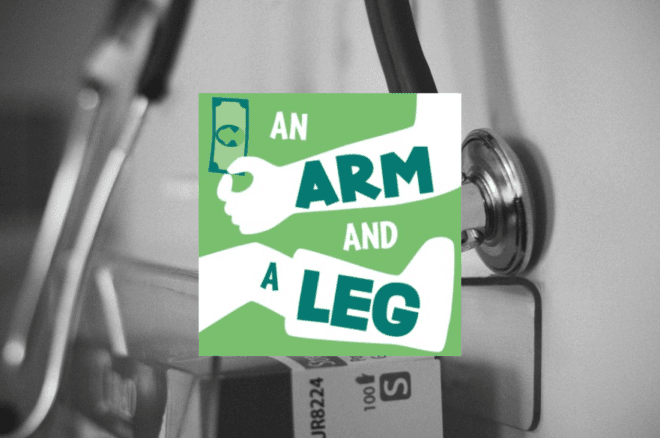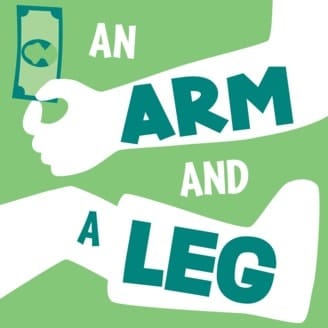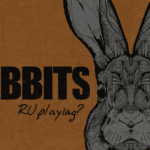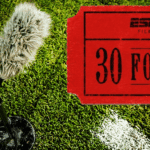Interview with Dan Weissmann of “An Arm and a Leg” about hope, healthcare

Since November of 2018 journalist Dan Weissmann has produced three seasons of his podcast An Arm and a Leg, a series dedicated to looking at how phenomenally messed-up the American healthcare system has gotten. Episodes range from the history of generic drug pricing to personal stories highlighting people who’ve had to jump through healthcare hoops for even the most basic care. In AAaaL’s most recent episode a mother tells the story of how getting stitches for a cut on her son’s knee ended up being $3,000 out-of-pocket.
Long story short: healthcare sucks and is at times labyrinthine it is complexity, there’s even a musical about it.

In an early promo for An Arm and a Leg, Weissmann reaches out to the audience with an affirmation: “You are not alone. We may be screwed, but we’re together. And if we want to get even a little bit less-screwed, we need each other. If nothing else, we can be good company to each other.” From that 2018 promo to the very end of our interview, Weissmann’s commitment to hopeful forward-thinking and community building has been a cornerstone for his podcast. A show that, otherwise, could be one of the most terrifying listening experiences for anyone unfortunate enough to deal with privatized healthcare in the United States (that is to say: most of us).
Gavin Gaddis: An Arm and a Leg spends a lot of time telling stories about how the United States healthcare system has failed catastrophically. On paper, it should be a depressing podcast, yet it somehow leaves one hopeful for the future. How do you foster that hope?
Dan Weissemann: It’s a decision. A decision up front that we’re not here to just be depressed, I’m not here to just be depressed. I’m not here to get you upset, that’s the way news and journalism are set up. The imperative generally is to grab your attention, right? And grabbing your attention with something horrifically upsetting is a time-tested strategy. “You’ll never believe how horrible this thing is.” Stories about the cost of health care in general-interest media outlets give us plenty of those stories. Partly out of necessity because that’s how the model works.
The whole intention of [An Arm and a Leg] is to address the fact that those headlines and those stories don’t leave us any place except really upset. They are events to the extent that we noticed those individual headlines and then we’re back in the swirl of all the other headlines competing for our attention.
In starting this project my intention has been to create an opportunity for us to have a real conversation about the mess that we’re in so that we can start to figure out our way forward. A state of total panic, rage, or depression is not a very useful place to be if you’re actually trying to figure out what to do next.
Weissmann likens dealing with healthcare costs to citizens walking across a battlefield, dodging bullets. Everyone’s at risk in a system where a simple injury playing basketball can run into thousands of dollars out of pocket, even with insurance. In a place where most people can’t easily pay for healthcare they’re left in a precarious position.
Dan Weissmann: That’s the reality that we’re walking around in. That’s obviously super scary, but going around yelling “Hey, we’re on a bunch of danger here” isn’t very helpful. I’m not helping anybody if I do that.
I’m not an expert, I certainly did not start as an expert, I’m not a general with a battle plan. There are people who want that role and who are looking for that role. I’m a scout. That’s my training as a journalist, I’m here on the ground with you. And I’m good at running around the next corner and reporting back to you what I find.
[And I’m good at] having a pretty good eye for which corner it’s probably a good idea to look around next. As we walk across this battlefield together, having a scout (I hope) is a good thing. And when we camp out at night, together, we can tell stories around the fire and keep our blood pressure down. Keep our panic at bay and develop our sense of community. We need that if we’re going to make it.
I read The Lord of the Rings with my son in the last few years. I’ve read it before, but one thing that really sticks out are these parts where the two hero hobbits, Sam and Frodo, are trekking across the vast wasteland of Mordor to try to get rid of the ring and fulfill their quest. It’s awful, it’s the most depressing place, it’s incredibly frightening. They’re physically and spiritually weary from everything. And there are these lovely scenes where they’re sitting around the campfire cheering each other up, treasuring each other’s company, imagining themselves telling their kids and grandkids about their adventures together, imagining the questions their kids and grandkids will ask them.
One of the things I’m trying to do with this show is to provide [that sense of camaraderie] and do it for myself as much as for anybody else. I mean, I’m in this mess as much as anybody else. I’m not in acute financial peril., I haven’t had to go to GoFundMe or declare bankruptcy. So, qualify that as much as anybody else.
I’m I need to be cheered up as much as anybody else. I need the company of other people who are figuring this out one step at a time, as much as anybody else. And I happen to really enjoy being the kind of nerdy reporter who goes out and digs into complicated questions and sifts through a lot of bullshit to get to a real answer. There’s a ton of opportunity in the stories to do that. I find myself talking to a lot of people who I think are really inspiring along the way, my fellow civilians walking across this battlefield, there are some serious badasses.
Weissman recalls an example from the episode dropping the week we spoke: a mother doing everything in her power to avoid massive fees while getting her son’s cut knee stitched up, only to be saddled with $3,000 in charges purely because she presented her insurance card. Had she not, she would’ve been charged 10% as much.
Dan Weissmann: The story of her adventures and trying to avoid getting taken for an unreasonable amount of money are hilarious. Her way of talking about it is great. It’s such a parable because she did everything.
How do I keep it from being a total bummer all the time? It’s like, well, there’s just so much here as a reporter for me to enjoy and do and hope and that, you know, it’s kind of what I like to do as a reporter is to do that and to share it.
I used to work for Marketplace. I did a lot of stories for WBEZ’s Curious City, I’ve done stuff for 99% Invisible. [I love] these nerdy pleasures of digging into the particulars of one person’s experience. I’m aiming to make it useful that these are that by knowing these things in some, like in this particular instance, like in this story we explore the question of whether she could have simply declined to give them her insurance card, and it’s not clear how well that would have worked. We do dig up tons of useful information, and I hope that it’s useful beyond a kind of utilitarian way. Or in addition to this utilitarian way. These are stories we can enjoy around the campfire.
And that that exact process of telling stories around the campfire and kind of turning the object of our terror into the subjects of the stories that we enjoy around the campfire. I think that’s profound. That’s my value system, it’s kind of how I want to go through life. This is completely how I’m wired; to learn stories, learn how things work, tell them and hope that it’s both pleasurable and… I’m going to make a leap here and use the word healing.
Gavin Gaddis: You make a wish to change things for the better, it’s now 2028, how does that dream healthcare system look? I mean, even then, 2028 might be a little too close.
Dan Weissmann: Obviously there are so many variables. Like, next year or even the next year I think it’s going to suck no matter what, but maybe if everything lines up right and we’re also you know making great progress on climate change and other stuff. [By then] what healthcare looks like is probably like what it does [currently] in other Western countries where the health care system is like the firefighting system.
I avoid talking about the politics of this issue in the show because we have such a divided country politically and things get so polarized so quickly. To talk about any of the big-picture policy questions about health care kind of slots us very quickly into those debates. But if I get my wish: yeah, I would wish for us to have a system like other countries where questions of sickness and health are not questions that also spark fears in so many people about bankruptcy or whether they can make rent on this system.
Weissmann brings up how wild the old system of firefighting sounds before it was socialized, in which getting a fire truck to one’s house and paying to put the fire out could ruin a person.
Dan Weissmann: That seems crazy, but that’s kind of how it is with your body. There are people who believe that the profit motive is the best way to organize everything, but I respectfully disagree that it’s an absolute in all cases. I mean, I think that’s a kind of a priori belief. I had a professor in college once who asked us to define what a belief is. His answer was “a belief is something you can’t prove. Otherwise, it’s not a belief.” And so I think this question of “is the profit motive the thing around which everything must be organized?” That’s a belief. It’s not provable, in my opinion, and I don’t believe it. I don’t think there’s any enormous danger of having that conversation, unfortunately.
I hesitate to open it up because it can get so inflamed. I didn’t affirmatively believe that the profit motive was (or is) the very best and only way to organize things well before I started doing this project, but I definitely do not believe it, having [worked on AAaaL] for a couple of years.
Gavin Gaddis: You’ve created this pipeline through which you (and by extension anyone listening) gets to hear that all these seemingly anecdotal stories from their local communities are nationwide. It’s not just that one friend of yours who has a $15,000 limit credit card in a drawer somewhere and that’s their health insurance.
Dan Weissman: No, this is all of us. The more I learn the clearer that becomes. There’s a study that came out last fall that showed what employer health insurance costs. For a family, it’s now like $20,000 a year which is like a new car. The average family pays like $6,000 of that. Deductibles of more than $1,000 are common and deductibles are in the multiple thousands of dollars are no longer uncommon.
I have a friend who recently changed jobs and for a month in the interim he had to pay for his own health insurance. That was his first notion of what it’s like. A middle-aged guy, had a bunch of totally decent jobs, not a wealthy guy but had never had to think about what health insurance costs or what healthcare costs because the jobs he’d been in had protected him from that. And then suddenly, it was like his eyes just popped open. That’s a lot of money. We don’t know that it’s not just us.
Gavin Gaddis: You’re releasing season three of the podcast, where do you expect to go from here?
Dan Weissmann: One thing that’s become pretty clear from doing the show and seeing how people respond to it is I feel like there’s a community of people listening to this show writing to me responding to me, and I’d like to bring us closer together. Partly that’s I hope by doing more episodes more often. Rather than taking time off and preparing a whole season of episodes, and lopping off things that don’t happen to fit within whatever we’ve decided that season’s about, we can have a kind of ongoing conversation. I’d like to do some live events so we can meet each other in person. I’d like to find ways to put together some of the information that we’ve been gathering and make it more useful and make it useful in a practical way. Maybe with a book or maybe through some other means. But so those are things that I really like. What do you think we should do?
Gavin Gaddis: Well my selfish response is “make more of the show” because without it I never would’ve known about Explanation of Benefits [a live musical about healthcare featured in a recent episode].
Dan Weissmann: Well thank you. One of the other things that we’re looking at, and it’s connected to that idea of community, is how the show sustains itself. When I started it, I had one model in mind, which is “with an enormous audience advertisers will come to us and everything will get paid for.: I think we have a substantial number of people listening to the show, and I feel really good about it. We’re not likely in our current way of doing things to be a show that gets sustained by advertising. We are starting to have to look to the community, to the people who have started to come around this show, to help us find ways to sustain and keep it going. We’ve been very lucky and people have been generous via Patreon and our editorial partners at Kaiser Health News put money into the show. But all that money is going to pay my collaborators and other hard costs of making the show. That cannot go on a whole lot longer. So, to make more episodes, we’re going to have to find ways to ask people for money directly, basically. And that’s going to be interesting to do And I think it’ll mean, too, asking “How can the show be the most useful? How can it be the most valuable thing?” That’s not a bad thing, but it’s gonna be an interesting part of the adventure.
You can find An Arm and a Leg at the show’s website, and Dan can be found on Twitter at @danweissmann













Comments
Comments are closed.